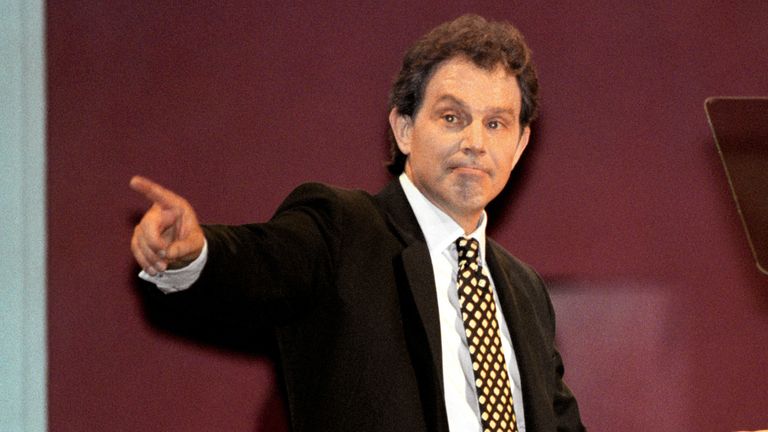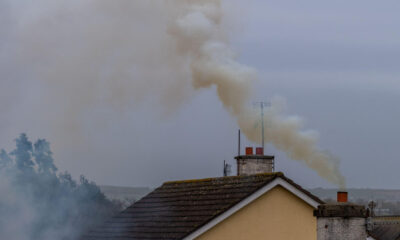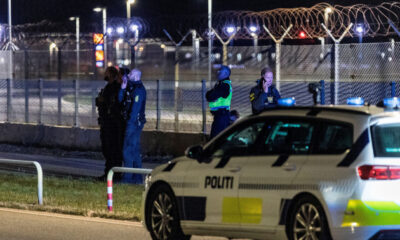Breaking News
Save the high street: Starmer’s plan to block fake barbers, betting and vape shops
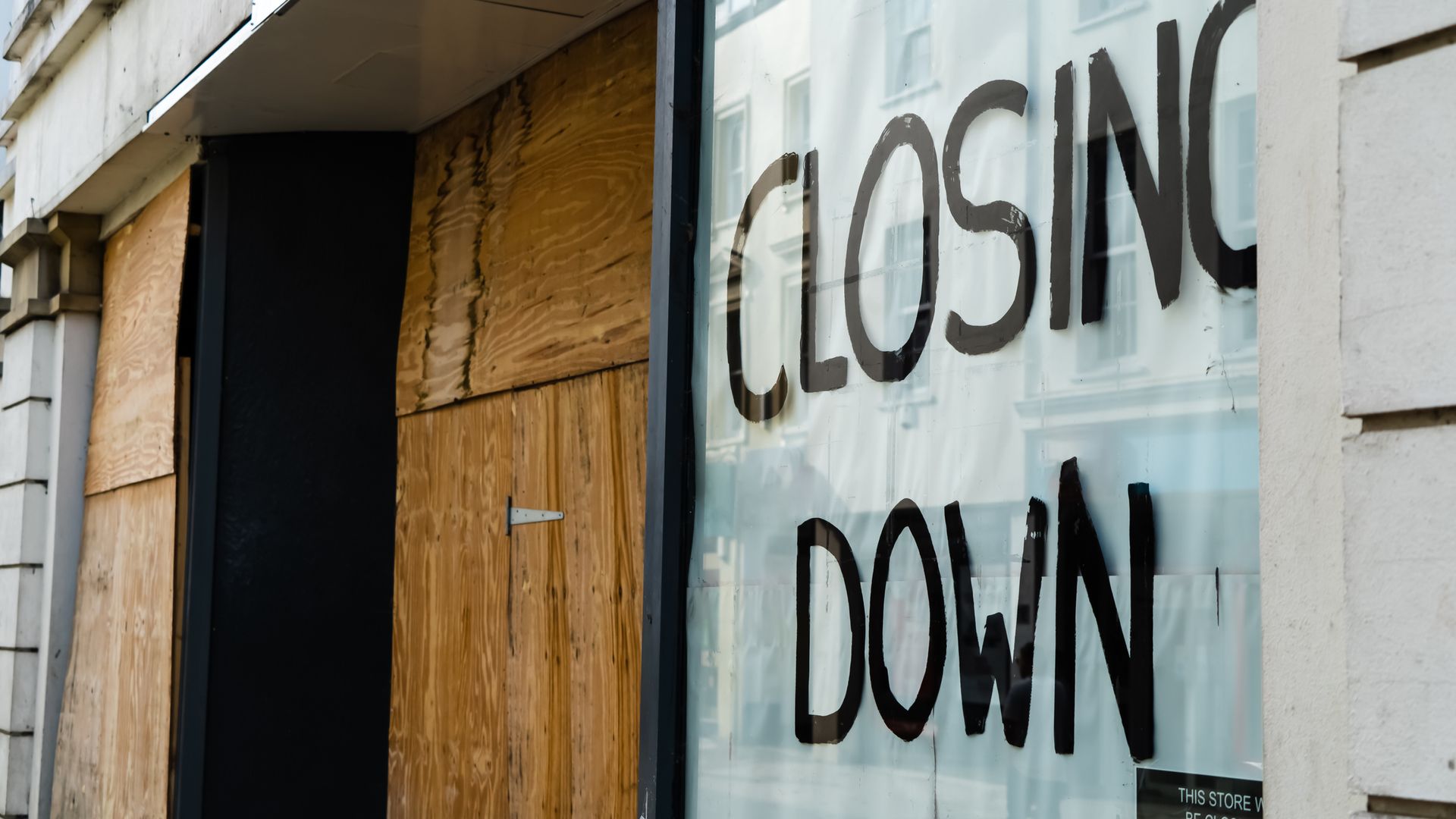
Read more on post .
Sir Keir Starmer is to announce a “Pride in Place” programme with funding for over 330 disadvantaged communities as part of a fightback against Reform UK.
The money will come alongside new powers for local groups to seize boarded-up shops, save derelict pubs and block gambling and vape stores on high streets, the government said.
Politics Live: Cabinet minister claims to have been victim of ‘sexist briefings’
The plan aims to address the sense of isolation in deprived communities, which Labour insiders believe is feeding the rise of Reform UK.
A Labour source described the programme as “absolutely essential” and “transformative”.
They told Sky News: “Reform is trying to divide communities, Labour wants to empower them, and we are giving them the tools and resources to turn them around.”
The full list of places that will receive the cash boost, and how much they will get, will be confirmed by the prime minister on Thursday.
The money is part of the communities funding plan announced by Chancellor Rachel Reeves in her June spending review, which promised new investment for 350 deprived areas across the UK “to improve parks, youth facilities, swimming pools and libraries”.
The government said at the time these areas included the 75 places previously named in the Plan for Neighbourhoods, each of which will get £20m of funding over the next 10 years.
The Spending Review named another 20 “pilot neighbourhoods” in England to receive the same amount of funding, mainly in the north or the Midlands, as well as five other pilots across the rest of the UK.
Sir Keir is expected to announce the rest on Thursday.
Speaking ahead of that announcement, the new housing secretary, Steve Reed, said the money will allow local people to “decide how best to restore pride in their neighbourhoods, not us in Westminster”.
He added: “That’s what real patriotism looks like: building up our communities and choosing renewal over division.”
How will the funding work?
The funding will be allocated to neighbourhood boards made up of community leaders and stakeholders, who will work closely with local councils, it is understood.
They will be granted Community Right to Buy and Compulsory Purchase Powers, allowing them to buy assets like grassroots football clubs, seize derelict buildings and save local pubs, the government said.
Councils will also be given powers to block betting shops, vape stores and fake barbers.
The programme draws similarities with Tony Blair’s New Deal for Communities (NDC), a 10-year regeneration drive that targeted 39 of the most deprived neighbourhoods in England from 2001.
An independent evaluation found NDC partnerships delivered improvements across several indicators, including crime, education and health. The biggest change was how people felt about their neighbourhoods as places to live.
Each area had around £50m of investment under the former Labour prime minister’s programme, but these were geographically bigger than the ones the government is now targeting, it is understood.
The “Pride in Place” Programme has been informed by the work of the Independent Commission on Neighbourhoods (ICON), launched in September last year to review the state of England’s neighbourhoods.
ICON identified 613 “mission critical” neighbourhoods – those they said needed the most urgent attention to make progress on Sir Keir’s “missions” for government.
Read More;
Rivals could take lessons from how Farage ‘hogs the headlines’
The bulk of these were in post-industrial areas in northern England, though high need was also identified in the West Midlands and coastal towns such as Blackpool and Clacton – the latter being the seat of Reform UK leader Nigel Farage.
Many of the sites to be announced are expected to contain a mission-critical neighbourhood within them.
Baroness Hilary Armstrong, a former Labour minister and chair of ICON, said: “If residents start to see positive, tangible changes in their neighbourhoods, this should start to restore the public’s faith in the power of government to do good.”
It comes at a critical time for Sir Keir, who has faced questions over whether he can survive after spending most of his first year in office languishing behind Reform UK in the polls.
Labour MPs have been lobbying for the funding for some time, expressing concern that Number 10’s mission to grow the economy with big infrastructure investments will not directly benefit people in areas that look and feel “left behind”.
Luke Akehurst, the Labour MP for North Durham, told Sky News: “This is what Labour governments are all about – properly funding the areas of the county that most need help.”
Breaking News
Chickenpox vaccine to be made free for children aged one
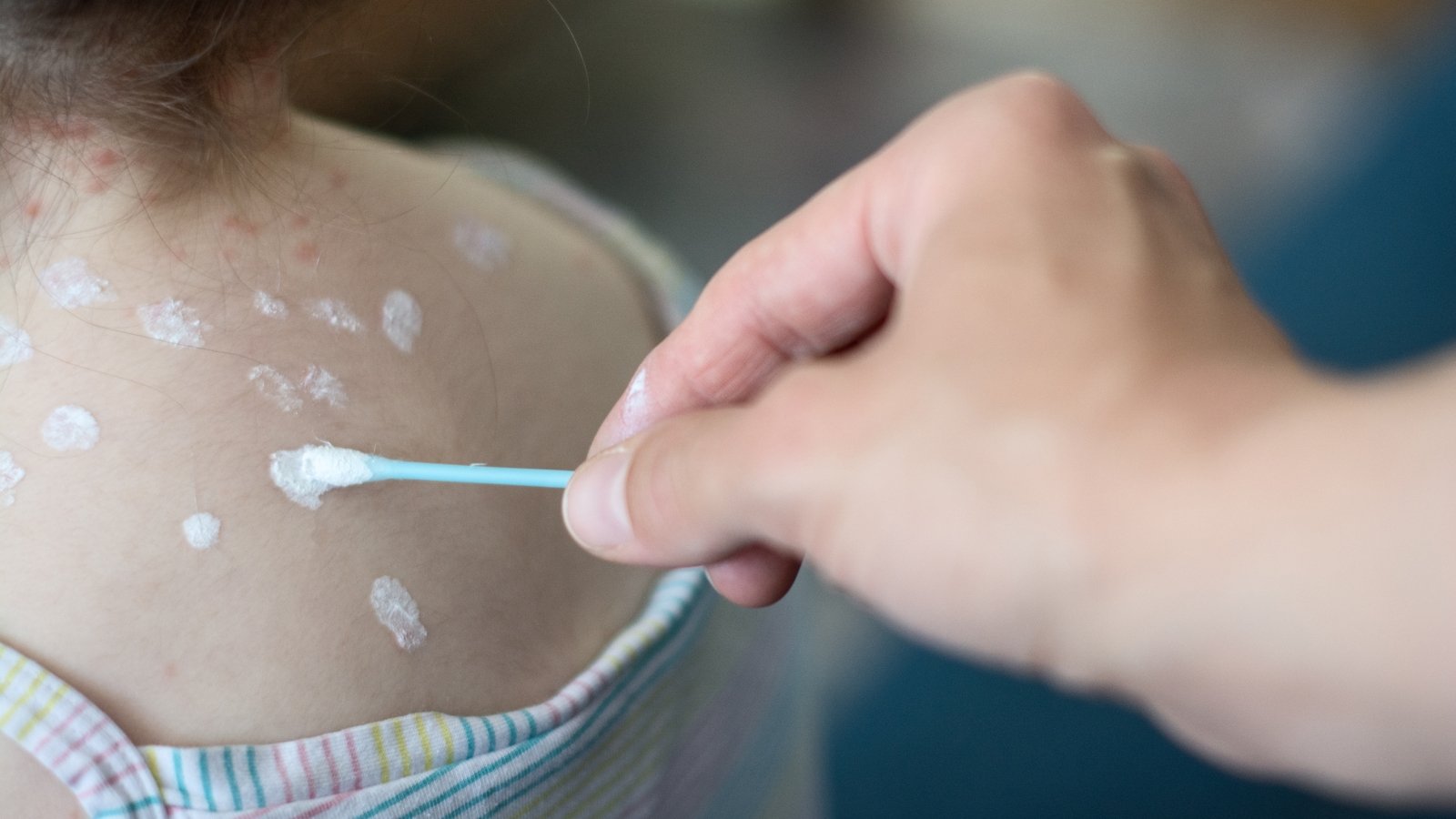
Read more on post.
The Health Service Executive has announced that the chickenpox vaccine will be made available free of charge for all babies born on or after 1 October last year.
The vaccine will be available once a child turns 12 months of age as part of the routine childhood immunisation schedule offered by GPs.
Previously, parents or guardians had to pay for the vaccine.
Dr Ciara Martin, a consultant in Emergency Medicine, welcomed the announcement as a “great celebration”.
Speaking to RTÉ’s Morning Ireland, she said they had been “waiting a while” for this to come in.
She said that although chickenpox can be a mild disease, there are a number of complications associated with it, including skin infections and viral pneumonia.
She said the vaccine is safe and has been available for a number of years, and has been part of the US vaccination schedule since 1995.
Dr Chantal Migone, a consultant in Public Health Medicine at the HSE National Immunisation Office, said she was “delighted” that the vaccine would now be part of the routine schedule.
“While chickenpox is often seen as a mild illness, it can sometimes cause serious complications needing hospitalisation in children,” she said.
“Vaccination at 12 months gives babies important protection against chickenpox and also helps protect the wider community”.
Dr Patrick Kelly from the Irish College of GPs advised parents to contact their GP as soon as possible if their child is approaching one year old.
“Getting vaccines on time, every time is the best way to protect your child,” he said.
“Your GP and GP practice nurse can answer any questions you have and make sure your baby gets everything they need at the right visit.”
The HSE has reminded parents to keep babies on schedule with all recommended vaccines at two, four, six, 12 and 13 months.
Parents are also reminded to bring their baby’s blue immunisation passport to each appointment.
Breaking News
Election candidates on the stump as campaign begins
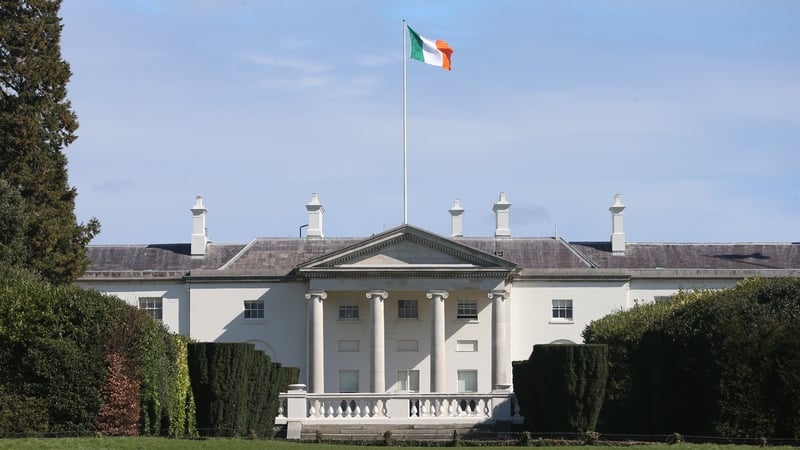
Read more on post.
Breaking News
Retailers and communities on the ‘chaos’ of anti-social behaviour
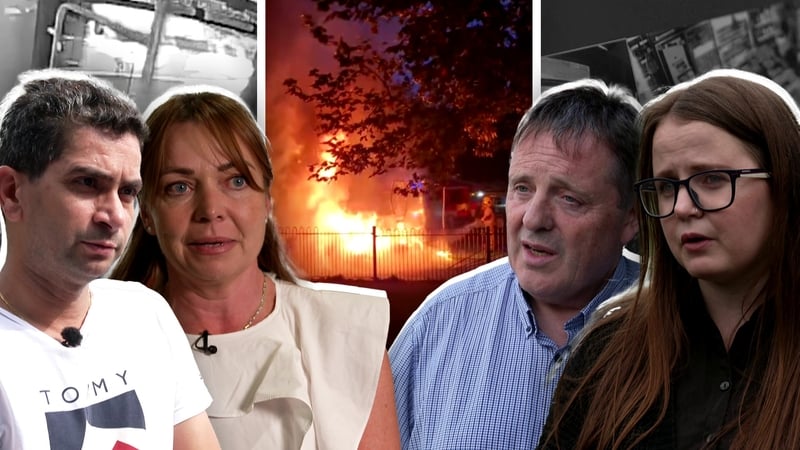
Read more on post.
Anti-social behaviour has become a pressing issue in towns and cities across Ireland, with retailers, commuters and public transport operators all reporting disruptive and sometimes violent incidents.
Incidents on Dublin Bus services, for example, have more than doubled since 2019 — and while no single dataset captures every occurrence, footage and first-hand accounts suggest the problem is being felt across communities.
Prime Time has been speaking to those impacted, and to experts, about the scale of the problem and possible solutions.
Gangs of children – including girls as young as ten-years-old – are causing “absolute chaos” by abusing staff, shoplifting and trashing shops, several retailers told Prime Time.
“We’ve seen an awful lot of 10 to 12-year-olds coming in wreaking havoc. They invade the shop in gangs of five to seven,” said Limerick shop-owner Geraldine Kearney describing a recent incident in her shop.
“They danced on our counters. They trashed the place, turned on ice cream machines [to pour over the floor].”
Ms Kearney says the gangs of children distract her shop staff by causing bedlam before jumping over the counter to rob vapes and other products. She runs a Londis and Circle K in Castletroy on the outskirts of Limerick city.
“It’s the fifth time that they have hit my shop. They know exactly what to do. They cause absolute chaos. They have taken €150 to €200 worth of products,” Ms Kearney said.
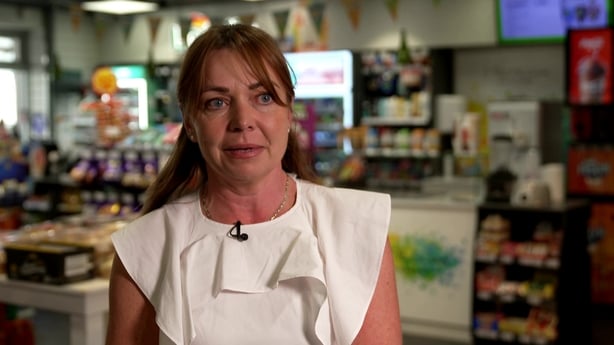
Caught on camera, they are just some of a wave of incidents which will be shown on a Prime Time report broadcast at 9.35pm tonight on RTÉ One television.
She added that the children have shouted at the staff, “You’re not allowed to put a finger on me, you’re not allowed to touch me”.
The CCTV and phone footage gathered during Prime Time’s research offers a snapshot of anti-social behaviour in homes, shops, and on public transport. The activity, several organisations and companies said, has increased in recent years, and is causing disruption across the country.
“Many people say they feel less safe,” criminologist and community activist Trina O’Connor said.
“They feel there’s almost like this menace in the air. And that’s been reported in study after study since the pandemic, that people feel a lot less safe within their communities.”
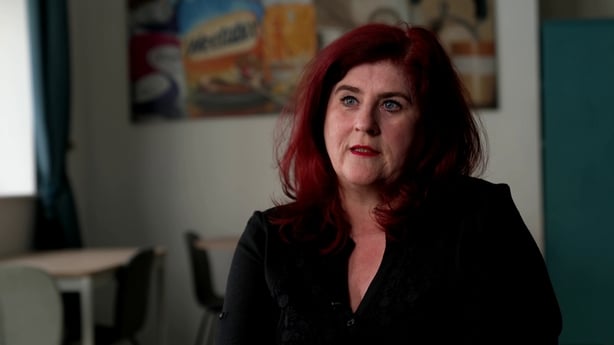
Dublin Bus has recorded a two-fold increase in anti-social behaviour on their buses.
Gwen Morgan, Director of Service Operations at Dublin Bus, told Prime Time that “in 2019 there were 494 incidents of anti-social behaviour reported on Dublin Bus services. You move forward into 2024 and that figure almost doubled to 1,053 incidents”.
CCTV footage from Dublin Bus services shows a variety of incidents ranging from a milkshake being thrown at a bus driver to violent clashes between passengers.
In one distressing incident a man and woman have a physically aggressive altercation. The woman is left lying on the floor of the bus after she appears to bang her head.
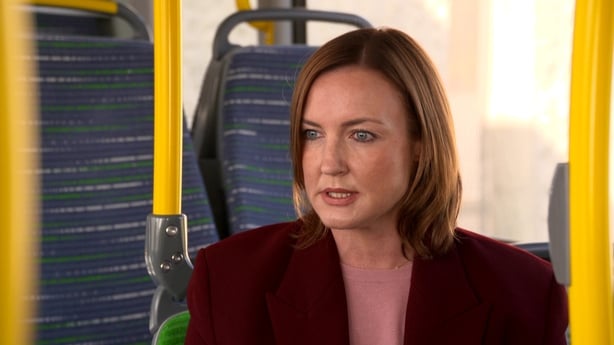
Footage from Luas operator Transdev shows a teenager indiscriminately kicking a ticket machine, while other footage shows a man subjecting a staff member to vile racist abuse outside Dublin’s Heuston Station.
Incidents of anti-social behaviour are not limited to public transport, as other workers have been victims of random attacks as they commute to and from work. While even incidents that don’t turn physical can leave an effect.
Originally from South Africa, Christie Pennicott has been living in Ireland for over a decade. She commutes to work in the city by scooter along the Grand Canal from her home in Lucan, west Dublin.
On the way home from work a few months ago, a group of teenagers threw rocks at her as she passed Clondalkin village on the canal. She managed to get away from the group on her scooter, but she has been left shaken by the attack.
As the dark winter evenings approach, she said, “I would be scared that some of them might be hiding. They might throw bottles. It might escalate”.
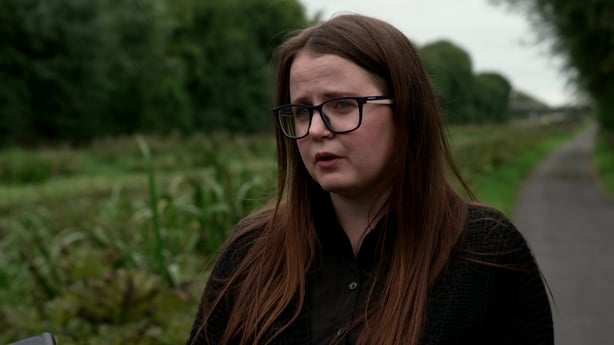
As recently as last week, Paul Gogarty, Independent TD for Dublin Mid-West, brought the apparent rise in incidents of anti-social behaviour up in the Dáil.
“Over the last six months, we’ve had so many incidents. We’ve had scooters going through playgrounds. We’ve had knives, fires lit, people being intimidated and threatened.
“They had a pregnant woman walking with a buggy, circled by a group of scooters, shouted at, and threatened.”
He told Prime Time: “it’s happening everywhere, and that’s the problem. It’s not specific to anywhere.”
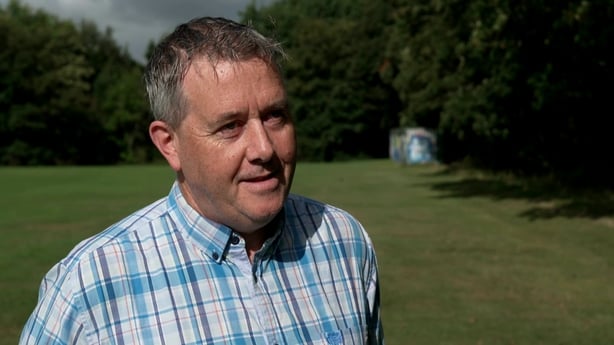
Videos of anti-social behaviour are constantly shared on social media platforms.
So, are they amplifying an already existing problem? And is it possible to accurately measure if there has been an increase in anti-social behaviour?
Criminologist Trina O’Connor makes the point that “anti-social behaviour is not recorded in the crime statistics [by An Garda Síochána]. So, it’s very difficult to know statistically whether there has been an uptick. But certainly, when you speak to people, they do feel less safe”.
Dr Johnny Connolly, from the Centre for Crime, Justice and Victims Studies at the University of Limerick, says anti-social behaviour can be seen as low level crime, behaviour that disrupts, upsets or intimidates other people.
“While you might hear concerns about an increase in anti-social behaviour, it’s very difficult to determine that.”
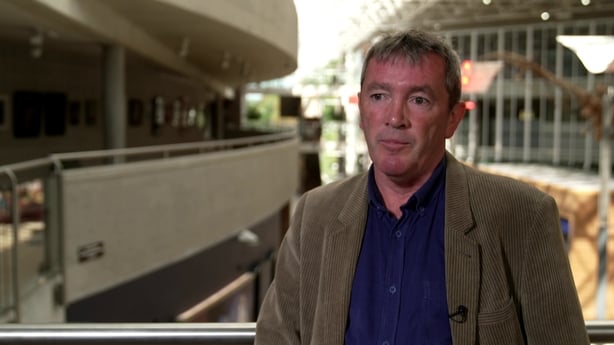
Routine supermarket visit turns traumatic
Originally from India, Rajesh Malik, has been living in Ireland for 24 years. He has been running his own phone shop in Lucan for 15 years.
In January, he was the victim of a serious assault outside a supermarket in Adamstown, west Dublin.
As he tried to lift a product from a shelf in the back of the shop, some teenagers stood in his way. When he politely asked them to move, the teenagers stood in front of him and refused to give way.
A security guard came along and asked the teenagers to leave the shop but soon a routine trip to a supermarket turned into a traumatic experience.
After the verbal confrontation with the teens inside the shop, Rajesh was attacked by a group of four outside.
Mr Malik told Prime Time: “I was going towards my car. One of the guys, he was 16 or 17, came in from behind, and hit me. And then all four of them [joined in].
“I was on the ground, all four of them, they start hitting me.”
He was left badly injured and needed three operations in hospital to treat his injuries – both of his hands were broken, and he had to have a plate inserted in one of them. He also needed stitches to treat cuts above his eyes.
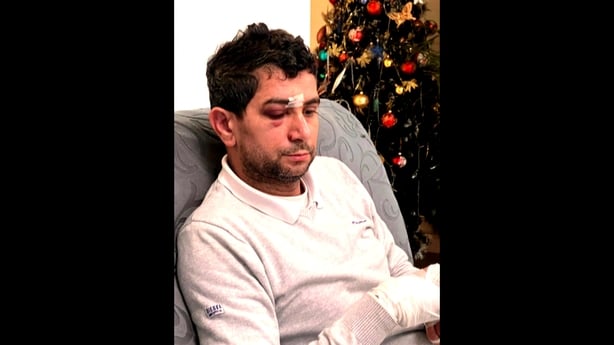
As disturbing as the attack was, what shocked Mr Malik most was that it was recorded as it happened.
So why do perpetrators film attacks? Criminologist Trina O’Connor says it comes down to several psychological motives for recording and sharing them online.
“One of the things is about they want to get a reputation for themselves, and they wear it as a badge of honour that they can intimidate other people,” she said.
“They will enjoy seeing that person being humiliated again and again.”
“The problem, I suppose, is for the victims, the innocent victims. That’s out there forever for that person to be humiliated,” she added.
Mr Malik says the random attack was not racially motivated. He reported the attack to the Gardaí but he says the perpetrators have not yet been identified.
The need to tackle causes not symptoms
Philly McMahon, an eight-time All-Ireland winning footballer with Dublin, is deeply involved in his home community in Ballymun on Dublin’s northside.
His older brother John died of a drug overdose in 2012, and he has since set up a charity ‘Half Time Talk’ to help at risk young people.
The Dublin GAA legend says his deceased brother acted as a role model, as his troubles caused by drug addiction acted as a deterrent. Instead of following John’s footsteps, Philly turned to sport and was hugely successful.
Asked about anti-social behaviour, he stresses the need to look at the causes and not the symptoms that follow afterwards.
“If you don’t look at it from that point of view, if you don’t look at it historically, then you’re probably just constantly putting out fires from the symptoms,” Mr McMahon said.
He says we can learn a lot from looking at the profile of Ireland’s prison population.
“Looking at the working-class communities that are heavily represented in prisons and then link that back, you could imagine that those people started their journey probably with anti-social behaviour.
He added when he grew up in the Ballymun flats, there was a “feeling that the Gardaí are your enemy and feeling that your opportunity in life was to bring something across the road and get a few bob for it, or it might be to rob cars or bikes”.
“When you look at young people and you look at the journey they’re on, there’s points of contact there that can make a massive impact on that individual. And it can be through sport, it can be through education. But generally, it can come from that one good adult that can believe in you,” Mr McMahon said.
“And that’s what Half Time Talk is trying to do. It’s trying to instil self-belief in young people, and it’s trying to pull youth organisations and local champions together to help the next generation of people, because those next generation of people can help the next generation, and it’s a snowball effect.”
He said that we should consider a similar strategy to one employed in the UK to tackle anti-social behaviour.
“They have Community Social Officers, and that’s actually very similar to what we do in the GAA world because we have GPOs – Gaelic Player Officers – that go into the GAA clubs, particularly here in Dublin, and they develop the coaching side of things.
“I think that could be used. We could use that element to impact the anti-social behaviour because that brings all the stakeholders together.”
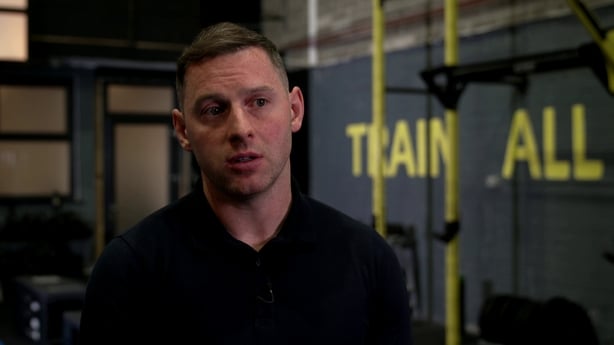
That idea echoes an initiative that is currently being rolled out across all local authorities.
Local Community Safety Partnerships – which bring together the Gardaí, local authorities, residents as well as the community and voluntary organisations – are currently being put in place.
Dr Johnny Connolly sat on the Commission on the Future of Policing which advocated for a significant overhaul of how communities will be policed through the Local Community Safety Partnerships.
“We now for the first time in this country have an infrastructure of community safety, again, following on from the recommendations on the Commission on the Future of Policing, where we have Community Safety Partnerships being established in every county in the state.”
The Department of Justice has confirmed to Prime Time that the first meeting of a Local Community Safety Partnership will be in Wexford next week, with a view to establishing partnerships in every county by the end of the year.
Some people have an alternative view on our criminal justice system and believe tougher punishments should be considered.
Retailer Shane Gleeson said is among those who argues that prison sentences should not be a last resort.
“The biggest issue I perceive is there isn’t enough jail space. I know some people say jail isn’t a solution, and I would say that’s ridiculous,” Mr Gleeson said.
“When there was more jail space available and people were afraid of going to jail, it did work. The problem now is there isn’t any,” he said, before adding “try working behind a shop counter and being assaulted or attacked every day of the week.”
Trina O’Connor says Garda Juvenile Liaison Officers (JLOs) can be instrumental in diverting young people away from anti-social behaviour.
“When you get a good JLO, the difference that makes for a young person is phenomenal,” Ms O’Connor said.
“People would say, just lock them up and throw away the key. But with that one good adult working with them and committing to them, that has helped them move their way through adolescence,” she added.
Dr Johnny Connolly believe that most young offenders naturally grow out of such behaviour, with the vast majority ‘aging out’ by their late teens.
“The vast majority of the young people who get involved in crime, which is a tiny minority, they generally age out of it around the age of 18 and 19,” Dr Connolly said.
“I would say Ireland is a very safe place to live. Again, it’s very difficult to say that definitively because of the absence of proper data sources and data systems,” he added.
While the statistics are not categorical, there are victims living in fear of anti-social behaviour.
Following repeated incidents in her shop, Geraldine Kearney in Limerick says her staff “are afraid. They will not take it anymore. It’s not fair.”
Rajes Malik says the perpetrators are not afraid of anybody and they think nobody can touch them.”
Christie Pennicott, who had rocks thrown at her by teens as she passed by on her scooter, is afraid of meeting her attackers again.
“For winter, there’s no way I can travel in the dark. It’s not safe.”
Reporter Conor McMorrow and producer Genevieve Brennan’s report ‘Law and Disorder’ is broadcast on the 25 September edition of Prime Time at 9.35pm on RTÉ One and the RTÉ Player.
-
Culture2 days ago
Taylor Swift’s new cinema outing generates more than €12million in just 24 hours
-
Politics2 days ago
European Parliament snubs Orbán with vote to shield Italian MEP from Hungarian arrest
-
Business21 hours ago
Households to be offered energy bill changes, but unlikely to lead to savings
-
Culture2 days ago
Milan Fashion Week 2025: Unmissable shows and Giorgio Armani in mind
-
Opinion2 days ago
Fintan O’Toole: How can you live with the knowledge that you have facilitated mass murder?
-
Culture3 days ago
Marvel stars Mark Ruffalo and Pedro Pascal stand up for Jimmy Kimmel as Disney boycott intensifies
-
Health3 days ago
EU renews support for WHO’s Universal Health Coverage Partnership
-
Opinion2 days ago
AI Is Pointless If It Doesn’t Boost Productivity


